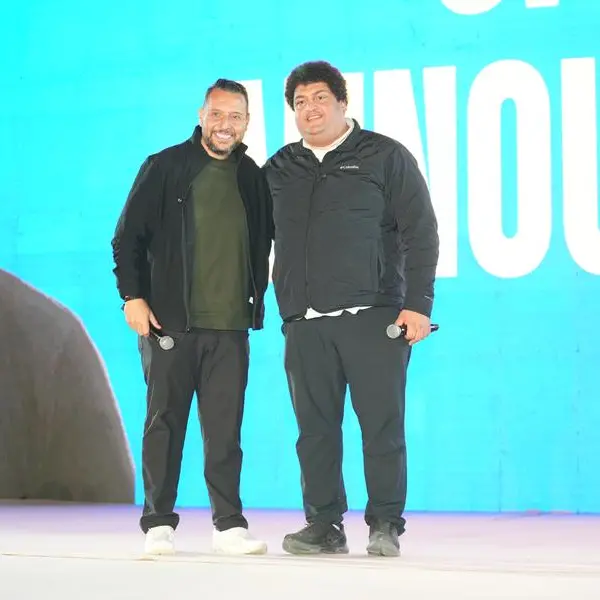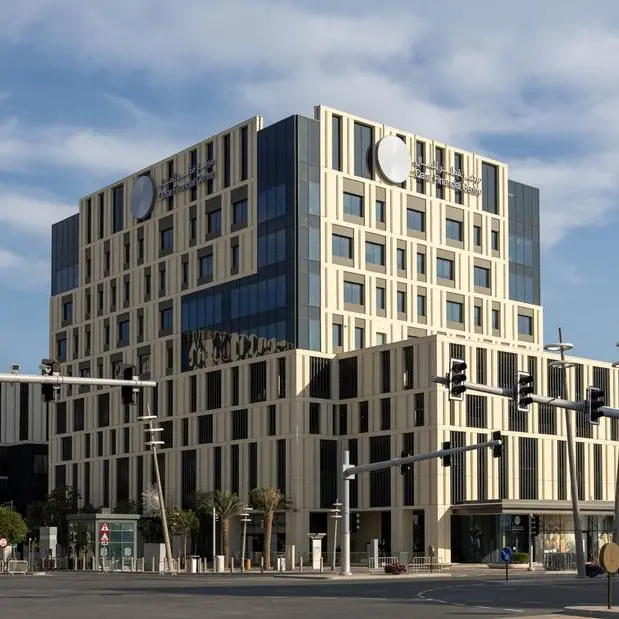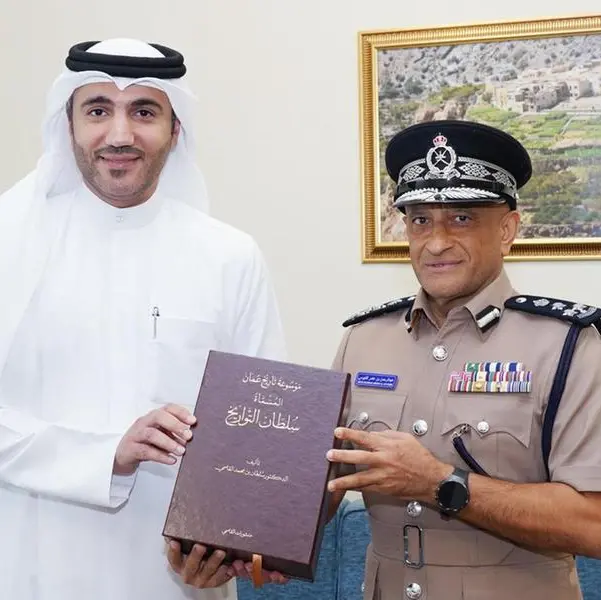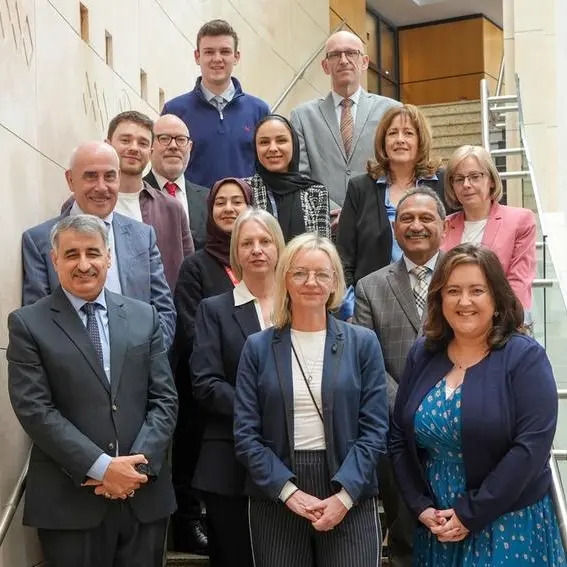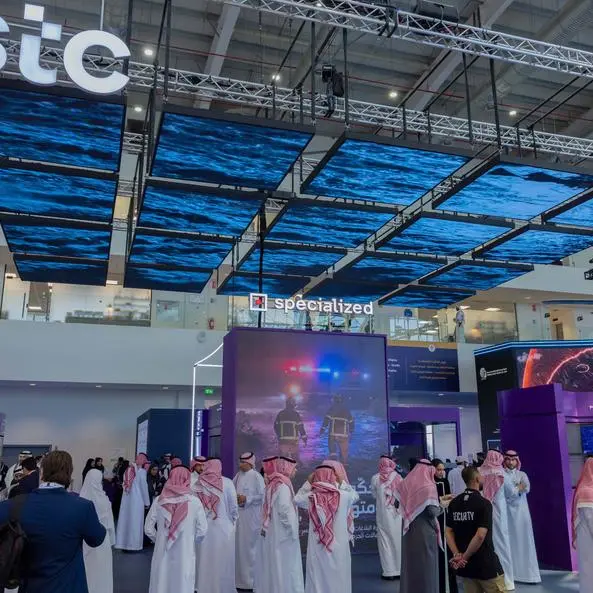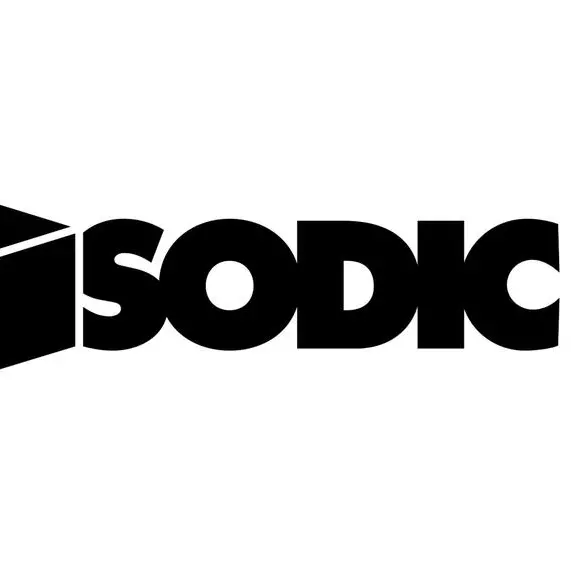PHOTO
Abu Dhabi: The NYU Abu Dhabi Institute is pleased to announce an exceptional lineup of talks which are free of charge and open to the public throughout the month of February.
Kicking off on February 3, the program will cover a range of topics pertaining to the field of science such as climate crisis, discourse analysis, psychology, biochemistry, physics, and astronomy, as well as other subject matters.
Notable speakers include Dean Emeritus of the Faculty of Arts and Science and Julius Silver Professor of Neural Science and Psychology at New York University (NYU) Thomas J. Carew; Associate Chair at the Department of Psychological and Brain Sciences, Professor of Psychological and Brain Sciences, and Professor of Radiology at Washington University Jeffrey M. Zacks; Director of the European Institute and Kathryn and Shelby Cullom Davis Professor of History at Columbia University Adam Tooze, alongside other distinguished guests.
Established in 2008 as a center of advanced research, scholarly, and creative activity in Abu Dhabi, The NYU Abu Dhabi Institute assembles academics, professionals, and leaders from around the world to its academic conferences and public program to discuss research areas and topics of local and global significance.
Public events throughout the month of November include:
- Green New Deal: Twentieth-Century Shadows on Climate Crisis
Talk
February 3, 2019
Location: NYU Abu Dhabi Institute
The climate crisis is the greatest challenge of the 21st century, but Western politics continues to approach it through the lens of 20th-century history. References to the New Deal, World War II, the Manhattan Project, Bretton Woods, and the Marshall Plan abound. This talk examines the enduring power of that framing and its limits in addressing our contemporary global crisis.
Speaker
Adam Tooze, Director of the European Institute; Kathryn and Shelby Cullom Davis Professor of History, Columbia University
(2) Generous Thinking: Argumentation and Collaboration
Talk
February 5, 2020
Location: NYU Abu Dhabi Institute
Higher education has absorbed one of the lessons of Graff and Birkenstein’s They Say/I Say: the key move in academic argumentation is from what others have previously said to one’s own contribution. The result is too often a mode of argument in which the ideas of our predecessors, our colleagues, and even our primary sources are treated as mere fodder for disagreement. What might we build collectively — as a field; as a profession — if we understood argumentation as a process of thinking with rather than against others’ arguments? This talk explores the challenges and the potential for modeling a form of discourse sorely lacking in the contemporary public sphere.
Speaker
Kathleen Fitzpatrick, Director of Digital Humanities, Professor of English, Michigan State University
(3) Making Memories in the Brain
Talk
February 9, 2020
Location: NYU Abu Dhabi Institute
It’s easy to think of memories simply as static photos pulled from a mental scrapbook; however, current research shows that memories are, in fact, dynamic recreations of past events that ultimately shape one’s identity. This talk considers how the wiring of the brain allows individuals to encode the world, how memories are encoded in the brain, where memories are stored, and how they are bought online to enable adaptive behavior. The ultimate objective of this research is to identify methods that improve memory in aging individuals and that restore it in those suffering from mental illness, disease, or brain injuries.
Speaker
Thomas J. Carew, Dean Emeritus of the Faculty of Arts and Science, Julius Silver Professor of Neural Science & Psychology, NYU
(4) Flicker: Your Brain on Movies
Talk
February 12, 2020
Location: NYU Abu Dhabi Institute
How is it that a patch of flickering light on a wall can produce experiences that engage our imaginations and feel totally real? From the vertigo of a skydive to the emotional charge of an unexpected victory or defeat, movies give us some of our most vivid experiences and lasting memories. They reshape our emotions and worldviews—but why? This talk draws on the history of cinema and the latest research in neuroscience and psychology to explain what happens in your head when you sit down in the theater and the lights go out.
Speaker
Jeffrey M. Zacks, Associate Chair, Department of Psychological and Brain Sciences, Professor of Psychological and Brain Sciences, and Professor of Radiology, Washington University
(5) mTOR Signaling in Growth and Metabolism: How an Unhealthy Diet Causes Diabetes
Talk
February 17, 2020
Location: NYU Abu Dhabi Institute
TOR (Target of Rapamycin) is a highly conserved protein kinase that controls a wide range of metabolic processes. More importantly, TOR is a central controller of cell growth that plays a key role in development and ageing. Dysregulated mTOR (mammalian TOR) is implicated in many disorders including cancer, cardiovascular disease, and diabetes. The aim of this group's research is to elucidate the mechanisms by which mTOR signaling is regulated and how it, in turn, controls many processes in both health and disease.
Speaker
Michael N. Hall, Professor of Biochemistry and Head of Research Group, University of Basel
(6) What's the Matter with Our Universe?: A Historical Journey into the Unknown
Talk
February 19, 2020
Location: NYU Abu Dhabi Institute
Recent astronomical discoveries have revealed a mysterious Universe where most of the mass and energy exist in some invisible form. All the matter that we see may only amount to a small fraction of the whole Universe. And while we think we know how to detect most of the cosmic mass, both visible and dark, we still don’t know what it is! What bizarre Universe do we live in? This talk addresses the quest, which led to the 2015 Nobel Prize in Physics at Queen’s University, to solve one of the most exciting puzzles in physics today.
Speaker
Stéphane Courteau, Professor and Co-ordinator of Graduate Studies, Astronomy, Astrophysics, and Relativity, Queen's University
(7) The Ambiguous Politics of Humor in Egypt
Talk
February 23, 2020
Location: NYU Abu Dhabi Institute
This talk examines how humor in 21st-century Egypt is both a form of subversive political action and a mode of hegemonic cultural expression that reinforces certain social hierarchies. Examples from before, during, and after the 2011 uprising demonstrate how important humor is in understanding the revolution and how it faltered.
Speaker
Jessica Winegar, President, Middle East Section, American Anthropological Association; Professor of Anthropology, Northwestern University
(8) Tightness-Looseness: A Fractal Pattern of Human Difference
Talk
February 26, 2020
Location: NYU Abu Dhabi Institute
Many cultural differences reflect a simple, but often invisible distinction: the strength of social norms. Tight cultures have strong social norms and little tolerance for deviance, while loose cultures have weak social norms and are highly permissive. A Rosetta Stone for human groups, this distinction illuminates similar patterns across nations, states, organizations, and social classes. An understanding of this template can help us develop more empathy and to bridge our cultural divides.
Speaker
Michele Gelfand, Distinguished University Professor in Psychology and the RH Smith School of Business, University of Maryland
-Ends-
About NYU Abu Dhabi Institute
Established in 2008, the NYU Abu Dhabi Institute is a center of advanced research, scholarly, and creative activity for Abu Dhabi, the UAE, and the world. Its academic conferences serve as a scholarly platform for NYU Abu Dhabi faculty, and faculty across the global network, to discuss and showcase their innovative research and creative activity. Its diverse public program of talks, panel discussions, film screenings, and exhibitions feature scholars, researchers, policy makers, and thought leaders who present topics of local and global significance. From its inception, The Institute has hosted more than 700 academic conferences and public events, and welcomed over 700 speakers from around the world.
About NYU Abu Dhabi
NYU Abu Dhabi is the first comprehensive liberal arts and science campus in the Middle East to be operated abroad by a major American research university. NYU Abu Dhabi has integrated a highly-selective liberal arts, engineering and science curriculum with a world center for advanced research and scholarship enabling its students to succeed in an increasingly interdependent world and advance cooperation and progress on humanity’s shared challenges. NYU Abu Dhabi’s high-achieving students have come from more than 115 nations and speak over 115 languages. Together, NYU's campuses in New York, Abu Dhabi, and Shanghai form the backbone of a unique global university, giving faculty and students opportunities to experience varied learning environments and immersion in other cultures at one or more of the numerous study-abroad sites NYU maintains on six continents
© Press Release 2020Disclaimer: The contents of this press release was provided from an external third party provider. This website is not responsible for, and does not control, such external content. This content is provided on an “as is” and “as available” basis and has not been edited in any way. Neither this website nor our affiliates guarantee the accuracy of or endorse the views or opinions expressed in this press release.
The press release is provided for informational purposes only. The content does not provide tax, legal or investment advice or opinion regarding the suitability, value or profitability of any particular security, portfolio or investment strategy. Neither this website nor our affiliates shall be liable for any errors or inaccuracies in the content, or for any actions taken by you in reliance thereon. You expressly agree that your use of the information within this article is at your sole risk.
To the fullest extent permitted by applicable law, this website, its parent company, its subsidiaries, its affiliates and the respective shareholders, directors, officers, employees, agents, advertisers, content providers and licensors will not be liable (jointly or severally) to you for any direct, indirect, consequential, special, incidental, punitive or exemplary damages, including without limitation, lost profits, lost savings and lost revenues, whether in negligence, tort, contract or any other theory of liability, even if the parties have been advised of the possibility or could have foreseen any such damages.

